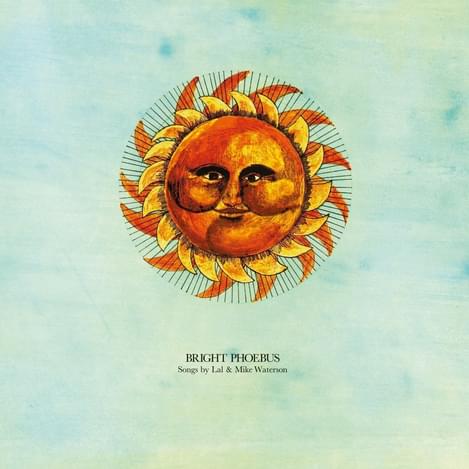Lal & Mike Waterson's legendary 'lost' album proves worthy of hallowed reputation
"Bright Phoebus"

From today's genre-hopping perspective, it's hard to figure out why this sparse, often stunningly beautiful album by Hull-born sibling duo Lal & Mike Waterson received such a mixed response on its original release. But perhaps things were more rigidly categorised in 1972 when the album was originally released, only to fall off the face of the earth once to initial pressing of 2,000 copies was gone. Despite (or perhaps because of) its obscurity, Bright Phoebus has gradually accrued a near-mythical reputation amongst those who have managed to catch it, including luminaries such as Arcade Fire, Billy Bragg, Richard Hawley and Jarvis Cocker (the latter two were part of the 2013 tribute tour to celebrate the record).
On its release, Bright Phoebus proved not folky enough for the hard-core folk crowd, who baulked at its distinctive original songwriting, even though the music (as well as venturing into folk-rock territory on the jubilant title track) remains markedly roots-y for the most part. Mainstream listeners, meanwhile, may have mistakenly expected these 12 tracks to conform to the uncompromisingly change-averse templates of traditional music thanks to its authors' pedigree as members of one of Britain's predominant folk family bands, The Watersons. To be fair, the jaunty hoedown of opener "Rubber Band" could well be designed to scare off folk-averse casual listeners; the track's ale-splattered singalong reaches jauntiness levels to match the permanently upbeat fictional trio The Folksmen in the brilliant folk revival satire A Mighty Wind. Soon as the tempo drops and brightly lit playfulness turns into shadowy ballads, however, Bright Phoebus accrues an irresistible, hypnotic pull. Once we stop worrying about whether the songs were written in the 17th century or the 1970's, the album excels as a showcase for two remarkable songwriting talents who had finally found an outlet for their own material outside the often rigid rules of the folk circuit.
Alluring strangers, strange and misfortune-riddled individuals, partying until the cheap red wine burns your gut, unsettling pagan rituals hovering on the outskirts of rural toil, bandits on the loose: the world these songs reside in shares traditional folk music's earthy but deeply strange foundations and ability to blur the line between stark realism and otherworldly mystery. Songs such as the unsettling "The Scarecrow", the desolate "Child Among The Weeds" and the bruised beauty of "Fine Horseman" are exquisitely written and presented with a richly expressive looseness (the arrangements are stark but full of alluring detail: the mournful, subtly utilised violin on “Never The Same” underlines the desperate sadness of the song’s account of debilitating illness and death) that renders the material unique, fresh and timeless, as well as unbound by any particular genre, style or era. By trying to escape the constraints of the tradition-bound folk orthodoxy, Lal and Mike Waterson managed to craft an album of songs that sound like long-lost standards.
Get the Best Fit take on the week in music direct to your inbox every Friday

Prima Queen
The Prize

Femi Kuti
Journey Through Life

Sunflower Bean
Mortal Primetime





